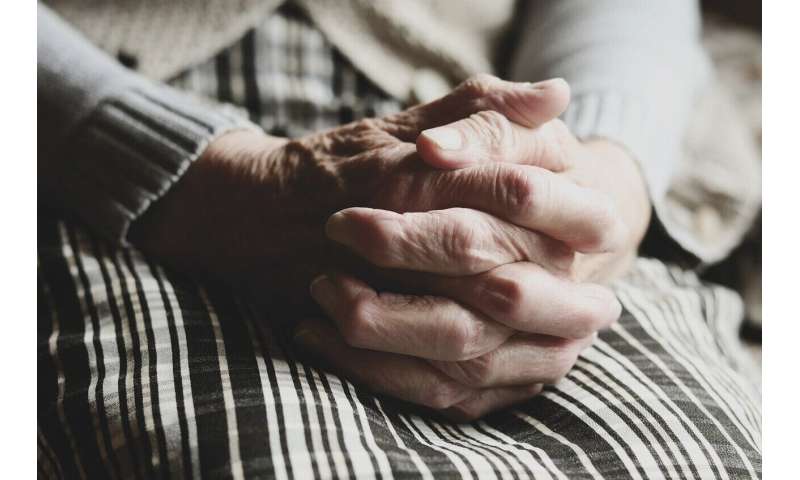Intimate partner abuse can lead to depression, suicidal thoughts in old age

Intimate partner abuse can have long-lasting effects. Even when the abuse happens early in one’s life, the damage may carry through until old age and can lead to heightened risk of depression and thoughts of suicide.
A team of researchers from UT studied the best ways to help older adults who have experienced this type of abuse. The lead researcher was graduate student Sukyung Yoon, who did the work as part of her dissertation in UT’s College of Social Work. Yoon has now finished her Ph.D. and joined the social work faculty at the University of Wyoming.
Other authors were the members of Yoon’s dissertation committee: Professor and Associate Dean for Academics Sherry Cummings, Professor and Associate Dean for Research William Nugent, and Associate Professor and Director of the Social Work Office of Research and Public Service Shandra Forrest-Bank.
“Protective Factors Against Suicidal Ideation among Community-Dwelling Older Adults with Experience of Spousal Physical Abuse: Focusing on Direct and Indirect Protections” was published online in July in the journal Aging & Mental Health.
One in three women and one in four men experience some form of physical violence at the hands of an intimate partner, according to the National Coalition Against Domestic Violence.
“This study revealed that older adults with experiences of spouse/partner physical abuse tend to have problematic mental health,” the researchers wrote. “It showed that older adults who have experienced spouse/partner physical abuse may suffer higher depressive symptoms than older adults who have experienced child abuse even if they had different demographic and health statuses.”
Using data from the Wisconsin Longitudinal Study, the UT researchers looked at 475 men and women ages 64 to 65 who reported a history of physical abuse by a spouse or romantic partner. They screened the participants to determine their levels of depression and see if they’ve had thoughts of suicide. They also looked at the participants’ coping strategies, social support networks, and whether they had confidantes among their family and friends.
The researchers focused on two types of coping strategies: problem-focused coping, which refers to proactive behaviors a person might use to relieve stress (seeing a therapist, engaging in exercise, etc.), and emotion-focused coping, which refers to cognitive efforts by an individual to change their perceptions of a stressful experience (denial, having a good cry, sleeping it off, etc.).
They found that problem-focused coping was a protective factor while emotion-based coping was a risk factor among the sample population.
Cummings said the finding sounds very logical.
“When you think about it, it’s like, “Oh, of course.” But when you’re in the middle of it, it’s not so easy. Human beings have a tendency to see the bad and ruminate on it.”
In fact, the researchers wrote, “female victims of intimate partner violence—and especially older women who have been victims—tend to use emotion-focused coping more than problem-focused coping. However, emotion-focused coping is related to increased depression and increase suicidal risk.
“Efforts to boost problem-focused coping and reduce emotion-focused coping appear to be important for addressing depressive symptoms and suicidal ideation in this population.”
In addition, the study showed the importance of having a social support system and confidantes.
“Our results show that social support helps reduce depression and thoughts of suicide,” Cummings said, noting that it’s not the number of friends a person has, but the closeness of the relationship that’s important.
“If you are depressed, it’s harder to reach out,” she said. “If somebody doesn’t have their own support system, having a support system created through the larger community is really important.”
In the study, the researchers explained, “Even if sufferers of past or present abuse do not have any special private and personal relationships with close confidantes, having caring and warm interactions at the community level, such as volunteers, social workers, neighbors and churches, may protect them against depressive symptoms and suicidal ideation.”
Cummings said there are several takeaways from their research that can help social workers and practitioners make informed decisions about how to intervene in order to prevent thoughts of suicide among older people who have experienced intimate partner violence during their lifetimes.
Education is key. Families don’t understand that depression is an illness—”not a natural part of aging,” Cumming said.
Also helpful: boosting social support programs at community levels.
Source: Read Full Article


